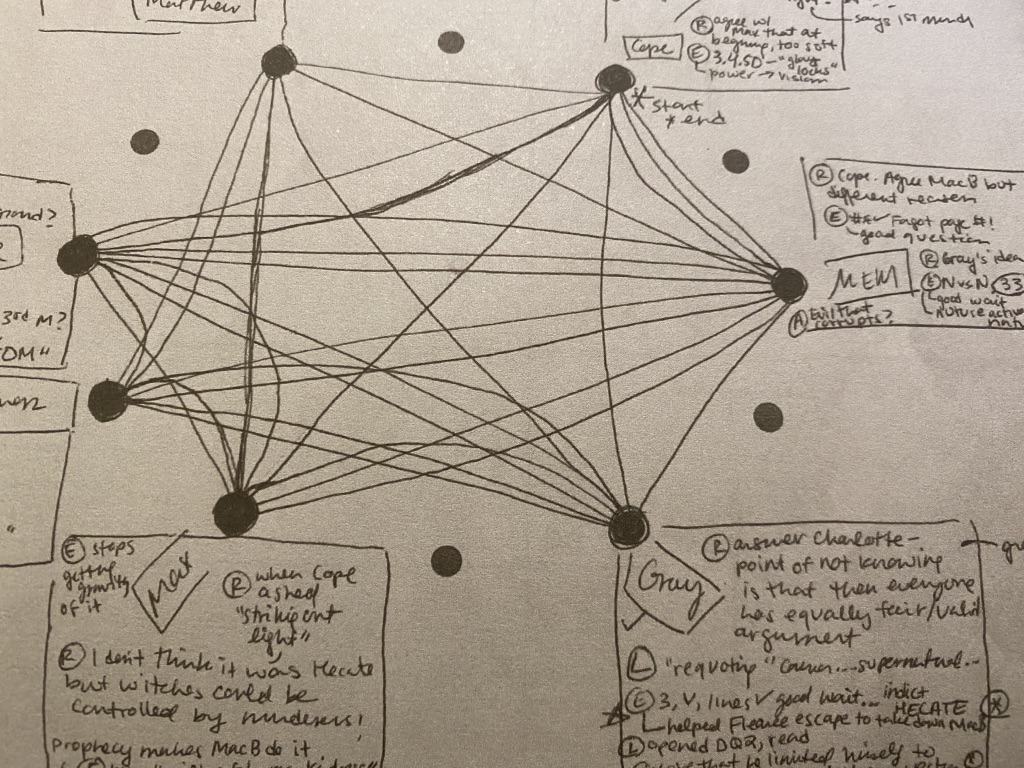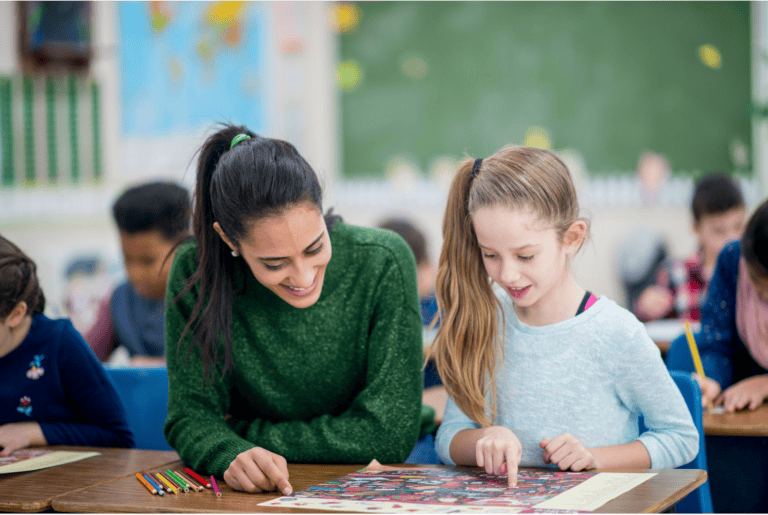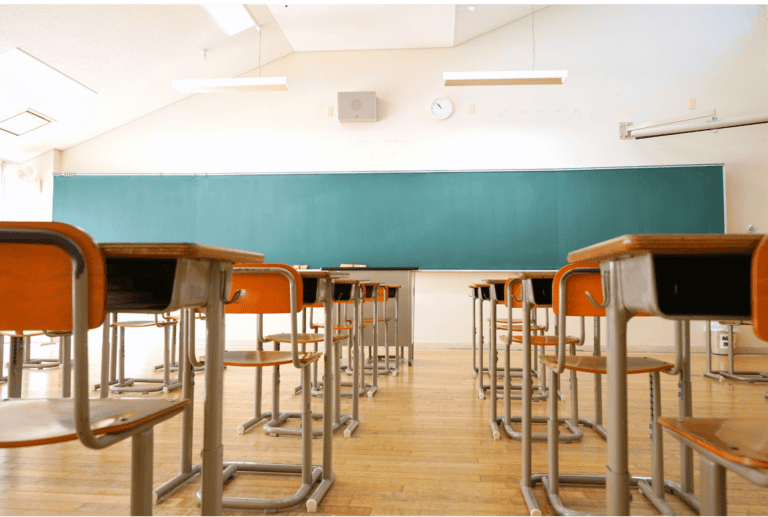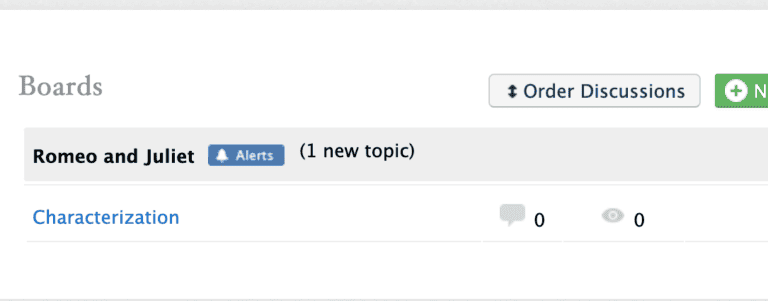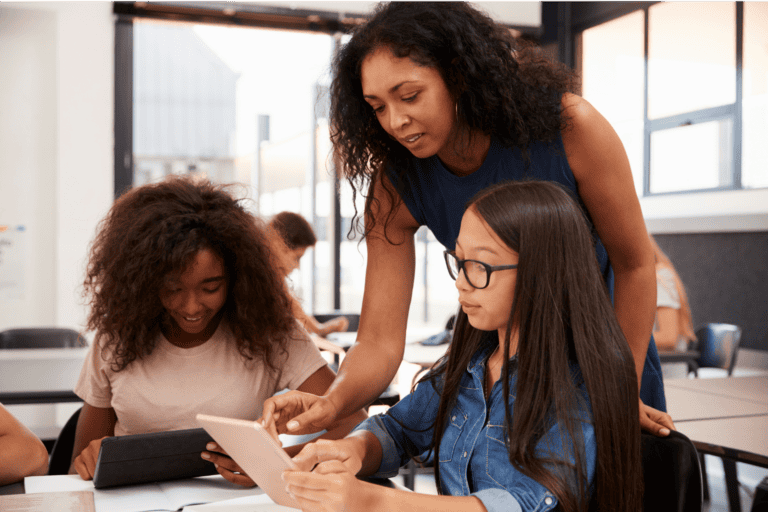Protagonists: Abby Reed
The Protagonists series highlights the main characters of our mission: the teachers out there hustling to make their students feel known, heard, and challenged through student-led discussion.
Abby Reed, English Teacher at the American International School of Cape Town
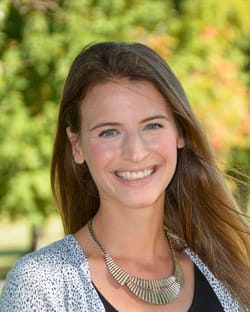
Hometown Carlisle, PA
Favorite teacher growing up: who and why? When I was growing up, I went to public school in Carlisle and had great teachers. The teachers that changed everything for me were when I went to the semester program at the Mountain School: Alden Smith and Jack Kruse. They taught me all about critical thinking and interdisciplinary thinking. I came away from their classes as a scholar.
Describe yourself as a student in three words: Diligent, self-conscious, hungry. I was intellectually curious.
Current City, School, Teaching Assignments (?): American International School of Cape Town; teach AP Literature and World Literature for 11/12th grade and 9th grade English
Favorite historical figure (or best line from history?): 12th century French poet Marie de France, who I’m fascinated by because she’s one of the first woman writers. I’ve also been learning so much more about John Lewis, who I guess now counts as historical.
Favorite literary character (or best line from novel?): I love Jane Eyre. Every time I teach the novel, I fall a little more in love with her spark, conviction, and integrity.
Favorite school supply? I have a Leuchtturm notebook for every school year. I keep my to-do lists there.
Pet peeve about class (student-led?) discussion? It’s hard when there’s a dead energy from students not being prepared. It frustrates me if there’s an expectation that something is prepared and then there’s that flatness because students are relying on me to run the discussion.
Favorite moment of class discussion? One thing I love is when a student has that a-ha moment where they connect the concept we’re discussing with some kind of real world knowledge where the text matters. I also love when a student really listens to learn and then states that he/she has changed his or her mind.
Biggest challenge to good discussion in a virtual classroom? We went online very quickly in March and then we’re supposed to start in-person classes in August. We have to be prepared to go virtual at any moment; some of our students will be virtual all along. I like to have my classes as discussion-based as possible, and you just can’t replicate that conversation online. The lack of ability to make eye contact and read body language really gets in the way of feeling like you’re all in it together.
Text you count on to inspire conversation? The novel that I can always rely on is City of Thieves by David Benioff. Born a Crime I’ve had a lot of success with, especially here in South Africa. For a shorter text, “The Ones who Walk Away from Omelas” by Ursula LeGuin.
What do you nerd out about? Right now, I’m really interested in conversations about reinventing education for the 21st century. We’re being forced to look critically at what education looks like and how educational systems have become outdated and are inequitable. I’m really interested in the possibilities, like microschools, ways to break down silos and have more interdisciplinary curricular experiences.
What is your wish for this world? I really hope that we learn from the current context. The dual pandemics of Covid-19 and racial inequity should, hopefully, be a lesson for us to do better in striving toward social equity and environmental stewardship. Maybe starting in the classrooms.
When historians recount 2020, what will they be especially fascinated by? I wonder if they’ll look at the way that all of a sudden people started ignoring inconvenient facts. The worldview or mindset in which you can disagree with a fact because you don’t want to believe in it — dismissing the seriousness of a pandemic because they’d rather live life as normal is a fascinating phenomenon.
One prediction for the future of schools? I hope, and I think, that we’ll learn a lot more about how students learn best, that having experience with these new models will help us to think through what students really need. Respecting student identities, the science of how students learn and the possibilities about how to do that better or differently. Maybe we’ll learn about how students learn and make changes at all levels — in curriculum, in adding interdisciplinary work, and in incorporating technology.
Best advice given to you by a department chair or supervisor? I think to show what makes me enthusiastic and be open about my passions. To share what I find exciting so that it might spark that interest in students, too.
Educator-Influencer you count on? First place you turn for classroom advice? There are a couple resources that I follow religiously on Instagram. Mud and Ink Teaching, Amanda Cardenas, is so creative. In the past week or so, I found this new teacher working around anti-racist education. Her handle is @ms_kawi. And then, Cult of Pedagogy.
Better discussions will _______________. Give students the tools to have the hard but necessary discussions needed to solve global problems.
